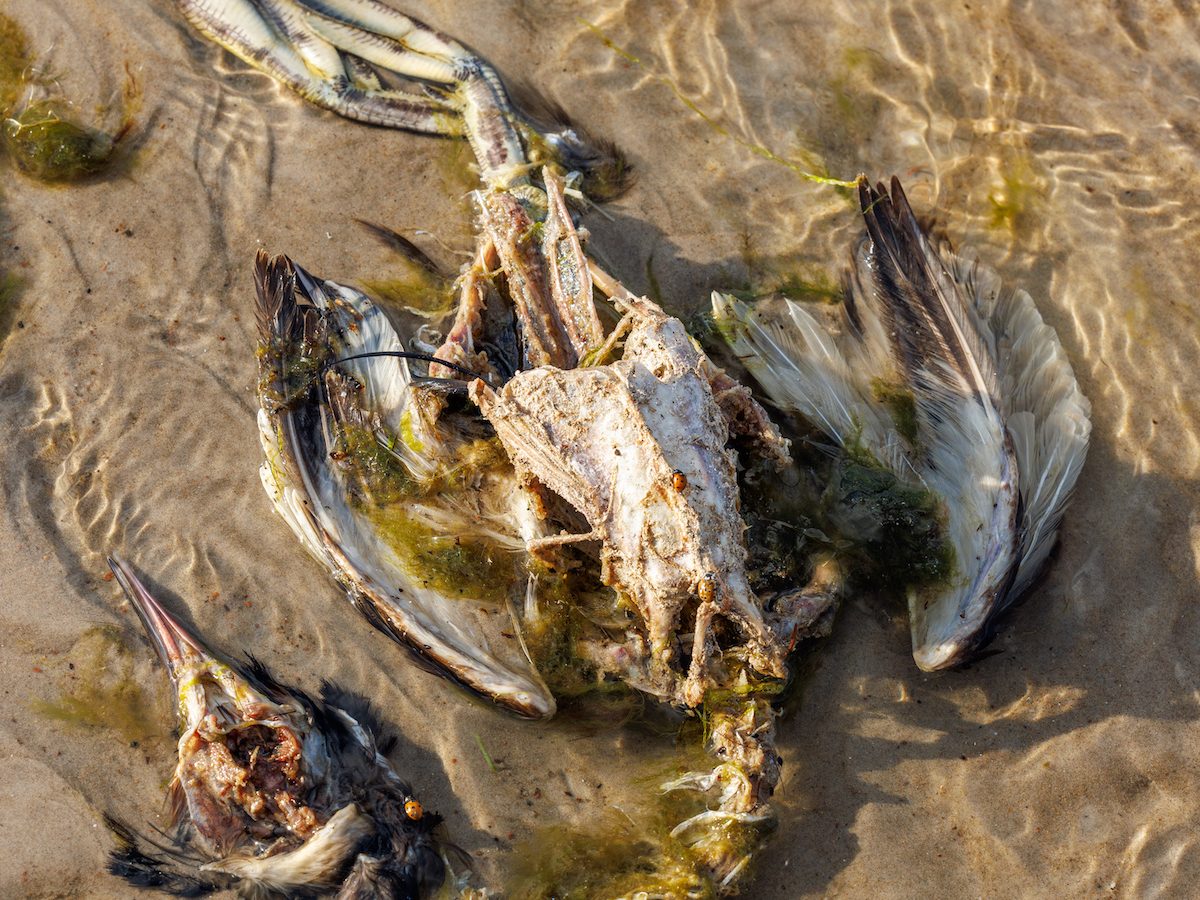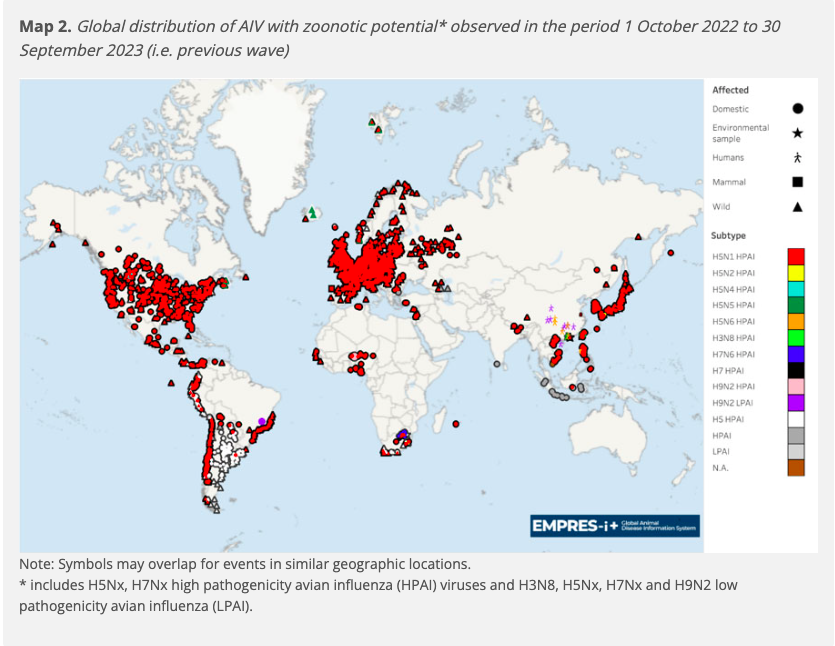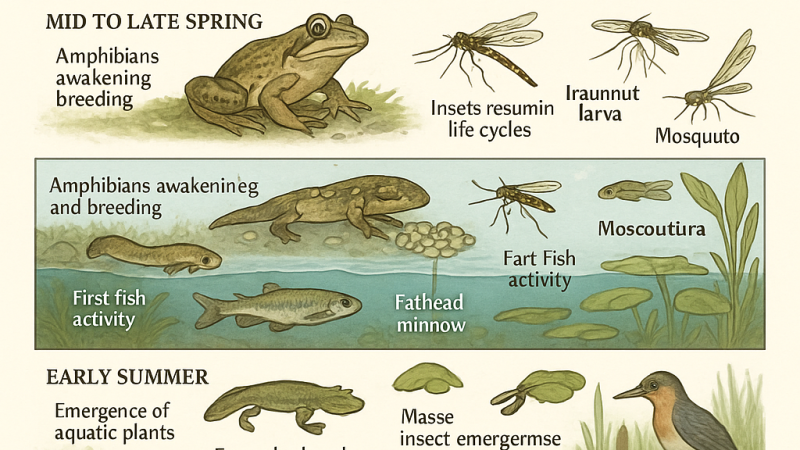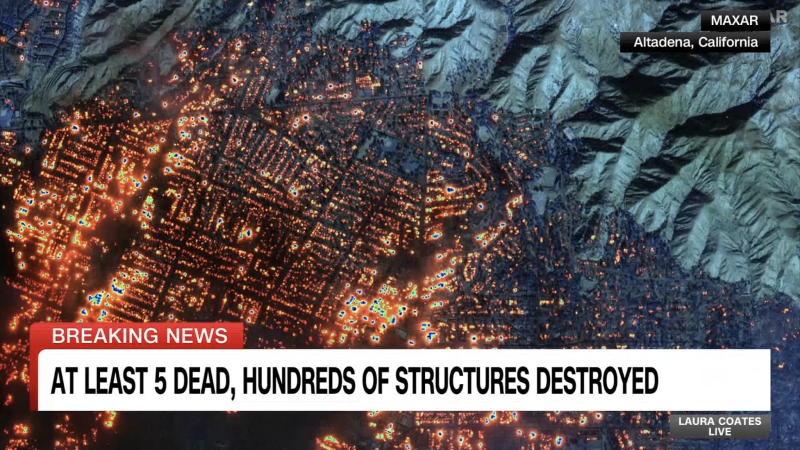Avian Influenza heralds accelerating ecological emergency in 2024

You may not have heard, but there is a virus rampaging through bird populations that has jumped to mammals and has killed hundreds of people. Highly Pathogenic Avian Influenza (HPAI) is so dangerous that the World Health Organization (WHO) and the United Nations Food and Agriculture Organization (FAO) have launched a Scientific Task Force on Avian Influenza and Wild Birds in response to the threat.
The Task Force issued a statement in July 2023, proclaiming “H5N1 high pathogenicity avian influenza (HPAI) is currently causing unparalleled mortality of wild birds and mammals worldwide with threats to population levels for some species already under multiple anthropogenic pressures.”
So far in 2024, the virus has killed a polar bear in northern Alaska who was probably dining on infected bird carcass,
The situation is so dire that the World Organization for Animal Health – the animal contingent of the World Health Organization – is actively preparing strategies to vaccinate wild populations of birds with “high conservation value” i.e. critically endangered species like the California Condor.
The significance of this outbreak cannot be overstated. This is a “step-change”, a “paradigm shift”, or “tipping point” or “black swan” or whatever media cliche you want to use to define the mother of all inflection points.
The Collapsing Ecology
These are crucial links in the evolutionary web of life breaking down in the global ecology and disintegrating in real time. Never mind the risk of a zoonotic outbreak. Forget the high price of chicken at the grocery store. This is the 6th mass extinction event – which includes human beings – accelerating into our present reality.
We are quickly descending into an ecological collapse that includes climate change, wildfires, droughts, flooding and human development of wild natural lands for residential, commercial and natural resource exploitation.
From an economic perspective, the ratio of wild undeveloped lands that host robust populations of plant, animal and microbial systems relative to lands developed for human habitation, commercial activity, and natural resource extraction have been excessively reduced to the point where these pathogenic micro-organisms are no longer contained by them. And so now they migrate out into abnormal species and geographies because those systemic containments are broken.
Distractions Galore
Strep throat, regular, run-of-the-mill influenza and COVID-19 viruses are this year’s triple threat dominating most actively social people’s health considerations this year. The more you travel and mingle, the more often you get sick, vaccinated or not. Especially post-New Year’s 2024, the spread of respiratory illness could be considered “rampant”.
And still we have an irresponsibly managed social media zeitgeist rife with COVID deniers and climate change deniers and vaccine deniers. Those voices are becoming less prevalent simply because the reality of infection tends to interrupt the obsession with conspiracy. And there is the mixed blessing of “stupidity attrition”. (I’m not going to explain what that means)
So it’s not surprising that the Avian Influenza pandemic isn’t front and center of the general population’s daily media diet; our warped collective obsession with individualistic choice precludes the educative potential of the social media phenomenon from being a valuable tool for the preservation and prioritization of the ecology. (Which contains “The Economy”).

Worse, the virus is mutating rapidly and now mammals are being discovered to have died from avian influenza, though mostly from scavenging infected bird carcasses.
The real fear in the global health community however, is the potential for it to successfully infect humans – the result of “zoonotic” adaptation to humans.
The World Health Organization (WHO) reported in October 2023, “Outbreaks have resulted in millions of poultry infections, several hundred human cases, and many human deaths. . Since 2003, 878 reported human infections of HPAI have resulted in 458 deaths – a mortality rate of 48%.
That mortality rate would have an extremely devastating effect on the human population, if the virility, infection rate and mutation rates increase even slightly. But while we’re waiting for these and other viruses to arrange themselves comfortably onto the human genome, we are about to experience severe economic impacts of diminished productivity momentum in poultry around the world.
In the first week of 2024, it was reported that a farm with 8,700 ducks in the town of Notre Dame de Riez that had all been vaccinated against Avian Flu had to euthanize the entire flock because the H5N1 virus nonetheless infected the flock. So the vaccine doesn’t appear to work at this point.
As a result, the Philippines banned poultry product imports from France and Belgium indefinitely, citing the need to protect domestic wild and commercial species from infection. While not a tremendous blow to Belgium or France in and of itself, such international embargoes on countries with Avian Flu outbreaks could have devastating effects on those industries. The Philippines imported 426,620 metric tons of poultry meat in 2023, 3.78% higher than the previous year, with Belgium accounting for 0.59% and France 0.01%.
The potential for widening economic impacts in the poultry industry is certainly concerning. But the implications of a complete and total breakdown of the ecological web that is prerequisite for human life on this planet is the far bigger threat.
At this point, most everyone in the developed world continues to pursue their daily productivity, recreation and mobility with zero adjustment for climate change and ecological disintegration. The time is rapidly approaching where nobody will be going about their day with a business-as-usual complacency because the ecology is teetering on the brink of destruction.
Additional Avian Influenza Stories you should read:
There’s still a pandemic raging. Its in the Ocean
–Washington Post, January 15, 2024
Nearly 700 swans found dead at nature reserve as specialists investigate bird flu
-CBS News, January 10, 2024
Avian flu surges in Northern California, threatening national poultry, egg supplies
-The Hill, January 7, 2024
Avian flu outbreak has now reached 52 B.C. farms
– CBC News, December 14, 2023




Jilibeecasino has some seriously addictive games. You know I got my friends already jumping in. Try it jilibeecasino
Alright, alright, tapwingames. I gave a try. Nice games here. Try it out: tapwingames
So I saw jilicrown22 the other day and I have to say it got me curious. The overall feel is promising, I am still trying it out to give a fair review though. Give it a look here: jilicrown22
If you are looking for somewhere to play, check out 7vvbetgame, I like the gameplay and UI could make it your place. 7vvbetgame
G555gamelogin makes it so easy to get into the game! No glitches, no fuss, just straight to playing. Mad props to the developers g555gamelogin
Been playing on G555games for a bit now and I’m pretty happy with it. Great variety and easy to spend hours on there. Definitely recommend g555games
Seubetlogin? Yeah, I’ve used it. Quick login, which is a lifesaver when you just wanna jump straight into the action. No messing around, just straight to the games! Give seubetlogin a try.
Hay88app might be what you’re searching for. Looks like it’s an mobile app. Check if it suits your needs. Just downloaded it myself. Will test later. Click here to follow: hay88app
Ber365login, another login page. Hopefully the interface is seamless for you. I tested it and it loaded fine. Here’s the express lane right here: ber365login
Alright, s6666bet is on my radar now. Gave it a spin and gotta say, the odds seem pretty decent. Depositing was smooth too. Good stuff! Find it here: s6666bet
Yo, j9app! Just checked it out. Pretty slick interface, and the game selection is seriously impressive. Definitely worth a look if you’re hunting for a new spot. Check it out here: j9app
VN69bet – heard that name! My mate was raving about how easy it is to navigate… If it’s as smooth as he’s saying, it’s worth the checkout: vn69bet
SP88bet? It’s in the mix, can’t really fault it, can’t really rave either. Worth exploring yourself: sp88bet.
Alright, 33wim, let’s see what you’ve got! Hope the experience is smooth and the wins are plentiful. Wish me luck! Check them out here 33wim.
Yo! Thinking about joining BHT Club? Signing up is pretty straightforward. Just make sure you’ve got an email address and a strong password. Here’s the signup link: bhtclubsignup
It’s fascinating how gaming platforms are adapting to local markets! Seeing Vietnamese language support & payment options, like with 68win app download, really enhances the experience. Probability plays a big role, of course, but accessibility is key!
AI is reshaping workflows everywhere, and platforms like tyy.AI make it easier to find the right tools. Check out their AI CRM Assistant-a smart pick for streamlining customer engagement.
e1hAUHe3Sft